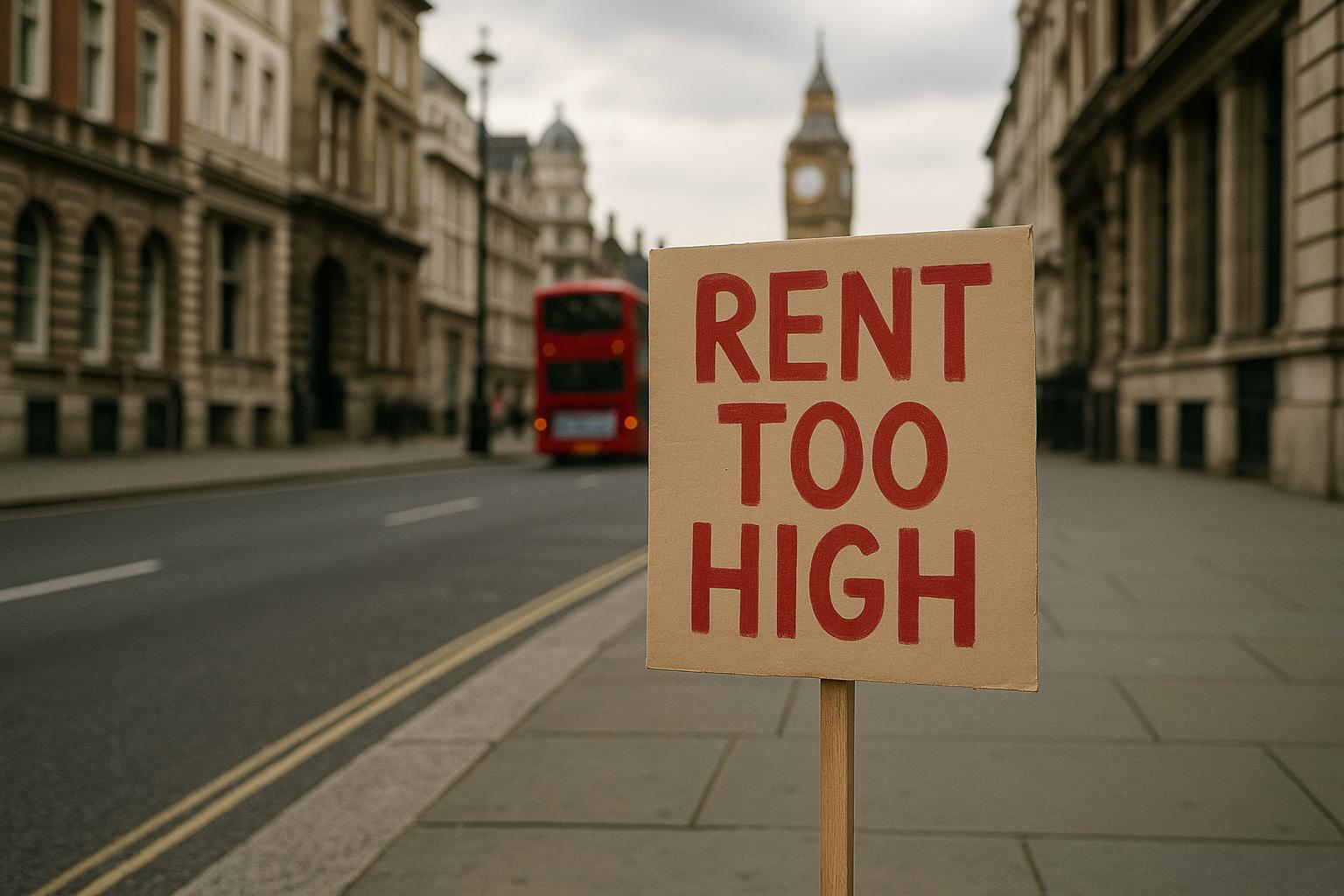The UK housing market is grappling with significant challenges, as recent data reveals continued weakening in home buyer demand and rising rental costs, contributing to increased uncertainty and hardship for renters. According to surveyors, for the third consecutive month, the volume of new buyer inquiries has declined, with a net balance of 19% of property professionals reporting a fall rather than a rise in September. This decline is closely linked to anxiety surrounding the forthcoming November Budget, as both buyers and sellers exhibit growing caution amid concerns over affordability and overall market sentiment.
This environment is placing particular strain on renters, with experts highlighting how rising rents exacerbate the instability faced by those living in the private rental sector. Tom Bill from the Royal Institution of Chartered Surveyors emphasised the dual pressures tenants face: not only are rents being pushed higher, but many renters encounter precarious situations when landlords decide to sell properties, forcing families to move repeatedly. These upheavals are especially difficult given that many people now rent later in life, implying a greater financial and emotional toll from frequent relocations.
Rental costs are projected to increase by approximately 3% over the coming year, according to the same property professionals. This incremental rise adds to concerns already heightened by economic uncertainties. Meanwhile, the underlying market dynamics reflect a broader challenge affecting landlords and property owners. Analysis from various property experts notes that rent control measures, while designed to protect tenants from steep price hikes, may have unintended consequences. By limiting landlords' ability to adjust rents to reflect market rates or rising property expenses, rent control can lead to financial difficulties for landlords.
Such constraints may discourage investment in rental properties, potentially causing the degradation of housing conditions and a reduction in the overall supply of rental units over time. This phenomenon is not unique to the UK. For example, studies from New York City underline how rent control distorts housing markets there, contributing to a diminished availability of rental properties and worsening building maintenance. Advocates for lifting rent controls argue that removing these regulations could improve property values, enhance rental turnover, and ultimately increase both the quality and quantity of available housing.
Together, these factors paint a complex picture: a housing market throttled by faltering demand, rising rents, and regulatory frameworks that may both protect tenants in the short term and constrain market health in the long term. Policymakers face the difficult task of balancing these competing interests while ensuring the housing market remains accessible and sustainable for both renters and property owners.
📌 Reference Map:
- Paragraph 1 – [1], [2], [5], [7]
- Paragraph 2 – [1]
- Paragraph 3 – [1], [2], [5], [7]
- Paragraph 4 – [3]
- Paragraph 5 – [4], [6]
- Paragraph 6 – [1], [2], [3], [4], [5], [6], [7]
Source: Noah Wire Services
